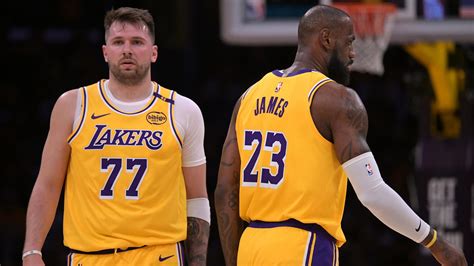
Luka Dončić’s potential departure from the Dallas Mavericks could trigger a $63 million financial hit for the franchise, compounded by over $100 million in salary commitments to other players, raising concerns about the team’s future competitiveness.
The Dallas Mavericks face a potentially crippling financial fallout if Luka Dončić were to leave the team, with projections indicating a $63 million loss stemming from the inability to capitalize on his superstar presence. This financial burden is further exacerbated by the Mavericks’ existing payroll, which commits over $100 million to players who, without Dončić, may not justify their contracts. The looming financial implications raise serious questions about the Mavericks’ long-term competitiveness and their ability to attract and retain talent in a Dončić-less future.
According to a recent analysis, the Mavericks’ financial structure is heavily reliant on Dončić’s presence, both for on-court performance and off-court revenue generation. A significant portion of the team’s value and revenue is directly attributable to Dončić’s marketability and the excitement he generates among fans and sponsors. Losing him would not only diminish the team’s chances of contending for championships but also severely impact their bottom line. “The Mavericks are staring down a potential financial disaster if they can’t keep Luka happy and competitive,” noted a financial analyst familiar with NBA team valuations.
The financial ramifications are multifaceted. First, the team would likely experience a drop in ticket sales, merchandise revenue, and local television ratings. Dončić’s global appeal has significantly broadened the Mavericks’ fan base, and his departure would likely lead to a contraction of this expanded market. Second, the team’s sponsorship deals, many of which are contingent on Dončić’s presence, could be renegotiated or terminated, resulting in a further loss of revenue. Finally, the overall valuation of the Mavericks franchise itself could decline, impacting the team’s long-term financial stability.
The Mavericks’ current salary commitments further complicate the situation. The team has invested heavily in players who are intended to complement Dončić’s skills and contribute to a championship-caliber roster. However, without Dončić, these players may not perform at the level required to justify their salaries, creating a scenario where the team is paying a premium for underperforming assets. This could limit the Mavericks’ ability to make future roster improvements and potentially trap them in a cycle of mediocrity.
The potential loss of Dončić also raises concerns about the Mavericks’ ability to attract free agents. Star players are often drawn to teams with established superstars, as they provide a foundation for contention and increase the likelihood of success. Without Dončić, the Mavericks may struggle to compete for top-tier free agents, further hindering their ability to rebuild and compete in the highly competitive Western Conference. “Free agents want to play with stars, and Luka is one of the brightest,” a player agent commented. “Without him, Dallas becomes a much less attractive destination.”
The Mavericks’ management is acutely aware of these challenges and has been actively working to build a competitive team around Dončić. However, their efforts have been met with mixed results, and the team has struggled to consistently contend for championships. The pressure is on to make significant improvements in the coming years to convince Dončić that Dallas is the right place for him to achieve his career goals.
To mitigate the potential financial fallout, the Mavericks need to focus on several key areas. First, they must prioritize building a winning team around Dončić. This requires making smart roster decisions, developing young talent, and creating a culture of success. Second, they need to strengthen their ties with the local community and continue to cultivate a strong fan base. This can help offset some of the potential revenue losses associated with Dončić’s departure. Finally, they need to explore alternative revenue streams and diversify their business operations to reduce their reliance on any single player.
The situation underscores the immense value of a superstar player in the NBA. Dončić is not only a generational talent on the court but also a significant economic asset for the Mavericks. His departure would have far-reaching consequences for the team’s financial stability and long-term competitiveness. The Mavericks must do everything in their power to keep him happy and ensure that he remains in Dallas for the foreseeable future.
The Mavericks’ predicament highlights the delicate balance between investing in a competitive roster and managing the financial risks associated with relying on a single superstar. While Dončić’s presence undoubtedly elevates the team’s ceiling, it also creates a significant vulnerability if he were to leave. The Mavericks must navigate this challenge carefully to ensure their long-term success. The team’s future, both on and off the court, hinges on their ability to keep Luka Dončić in Dallas and build a winning team around him.
The article from Yahoo Sports also pointed to a potential issue with the team’s overall strategy. “The Mavericks have put themselves in a precarious position,” the article stated. “They’ve tied up a lot of money in players who aren’t necessarily moving the needle towards a championship. If Luka leaves, those contracts become even more burdensome.” This suggests that the team’s management needs to re-evaluate its approach to roster construction and prioritize acquiring players who can truly complement Dončić’s skillset.
Moreover, the article touches on the psychological impact of potentially losing a player of Dončić’s caliber. “It’s not just about the money,” the article explains. “Losing a player like Luka can be demoralizing for the entire organization. It can create a sense of uncertainty and make it difficult to attract and retain other talented players and staff.” This underscores the importance of creating a positive and supportive environment for Dončić and demonstrating a clear commitment to winning.
The Mavericks’ situation is not unique in the NBA. Many teams rely heavily on superstar players, and their departure can have devastating consequences. However, the Mavericks’ case is particularly concerning given the magnitude of Dončić’s impact and the team’s existing financial commitments. The team must act decisively to address these challenges and ensure that they can continue to compete at the highest level, with or without Dončić.
The analysis also suggests that the Mavericks need to be proactive in communicating with Dončić and addressing any concerns he may have. “Transparency and open communication are crucial,” the article notes. “The Mavericks need to make sure that Luka feels valued and that he understands the team’s vision for the future.” This requires fostering a strong relationship between Dončić and the team’s management, as well as involving him in key decision-making processes.
Furthermore, the Mavericks need to be prepared for the possibility that Dončić may eventually choose to leave. While the team should do everything in its power to keep him, it also needs to have a contingency plan in place. This includes identifying potential replacements, developing young talent, and exploring alternative roster-building strategies. “The Mavericks can’t afford to be caught completely off guard if Luka decides to leave,” the article emphasizes. “They need to be proactive in preparing for that possibility.”
In conclusion, the potential loss of Luka Dončić would be a devastating blow to the Dallas Mavericks, both financially and competitively. The team faces significant challenges in mitigating the impact of his departure, including addressing their existing salary commitments, attracting free agents, and maintaining a competitive roster. The Mavericks must act decisively to address these challenges and ensure that they can continue to compete at the highest level, with or without Dončić. The team’s future hinges on their ability to keep Luka happy and build a winning team around him, while also preparing for the possibility that he may eventually choose to leave. The coming years will be critical in determining the Mavericks’ long-term success.
The team’s ownership group, led by Mark Cuban, also faces scrutiny. Their willingness to invest in the team and make the necessary changes to support Dončić’s ambitions will be crucial in determining whether he remains in Dallas. Cuban’s past successes in building a championship team have earned him a reputation as a savvy owner, but he will need to draw on all of his experience and resources to navigate this challenging situation. The decisions made by Cuban and his management team in the coming months and years will have a profound impact on the future of the Mavericks franchise.
The situation also has implications for the NBA as a whole. The league benefits from having star players like Dončić competing at the highest level. His departure from Dallas would not only hurt the Mavericks but also diminish the overall appeal of the NBA. The league needs to ensure that teams have the resources and incentives to retain their star players and create competitive environments. This may require revisiting the current collective bargaining agreement and exploring ways to level the playing field between large-market and small-market teams.
The Mavericks’ predicament serves as a cautionary tale for other NBA teams. It highlights the importance of building a well-rounded roster, managing financial risks, and fostering a positive relationship with star players. Teams that fail to address these challenges risk losing their superstars and falling into a cycle of mediocrity. The Mavericks’ experience underscores the need for proactive planning, strategic decision-making, and a long-term vision for success.
The pressure on the Mavericks is immense. The team’s fans, sponsors, and the entire city of Dallas are counting on them to keep Luka Dončić happy and build a championship-caliber team. The coming years will be a test of the Mavericks’ resolve, creativity, and ability to overcome adversity. The team’s success or failure will have far-reaching consequences for the franchise and the city of Dallas.
The narrative surrounding Luka Dončić’s future with the Mavericks is closely tied to the team’s performance in the upcoming seasons. Deep playoff runs and a genuine chance at contending for an NBA title could significantly sway Dončić’s decision to remain in Dallas long-term. Conversely, continued struggles and early playoff exits could accelerate his departure. The Mavericks’ front office is under immense pressure to assemble a roster that not only complements Dončić’s skillset but also elevates the team’s overall competitiveness.
Furthermore, the development of young players within the Mavericks’ system will play a crucial role in shaping the team’s future. If the Mavericks can successfully cultivate young talent into valuable contributors, it would alleviate some of the financial burden and provide Dončić with a stronger supporting cast. This would not only enhance the team’s chances of success but also demonstrate a commitment to long-term growth and stability, which could be a persuasive factor in Dončić’s decision-making process.
The Mavericks’ ability to navigate the complexities of the NBA’s salary cap will also be critical. The team must find creative ways to acquire talent without hamstringing their financial flexibility. This may involve making strategic trades, identifying undervalued players, and maximizing the value of their draft picks. A shrewd approach to roster construction could allow the Mavericks to build a competitive team around Dončić without incurring excessive financial risk.
The relationship between Luka Dončić and the Mavericks’ coaching staff is another important factor to consider. A strong and collaborative partnership between Dončić and the coaches can foster a positive and productive environment, leading to improved on-court performance and a greater sense of unity within the team. The coaching staff must be able to effectively communicate with Dončić, understand his needs, and develop strategies that maximize his potential.
The city of Dallas itself also plays a role in Dončić’s decision. The Mavericks’ fan base is passionate and supportive, and the city offers a vibrant and diverse culture. If Dončić feels a strong connection to the city and its people, it could increase his desire to remain in Dallas long-term. The Mavericks’ organization can foster this connection by engaging with the community, supporting local initiatives, and creating opportunities for Dončić to interact with fans.
The broader NBA landscape also influences the Mavericks’ situation. The balance of power in the league is constantly shifting, and the emergence of new contenders can create both opportunities and challenges for the Mavericks. The team must be able to adapt to the evolving landscape and make strategic decisions that position them for long-term success. This requires staying informed about league trends, monitoring the performance of other teams, and being willing to make bold moves when necessary.
In summary, the future of the Dallas Mavericks and Luka Dončić are inextricably linked. The team faces a complex set of challenges and opportunities as they strive to build a championship-caliber team and retain their superstar player. The decisions made by the Mavericks’ ownership, management, coaching staff, and Dončić himself in the coming years will determine the fate of the franchise. The team’s ability to navigate these challenges with creativity, strategic thinking, and a long-term vision will ultimately determine their success.
Frequently Asked Questions (FAQs)
-
What is the estimated financial loss for the Dallas Mavericks if Luka Dončić leaves the team?
- According to projections, the Mavericks could face a $63 million financial loss if Dončić departs, primarily due to the decrease in revenue from ticket sales, merchandise, and sponsorships tied to his popularity.
-
How much money has the Mavericks committed in salaries to other players besides Luka Dončić?
- The Mavericks have committed over $100 million in salaries to other players on the roster. These contracts could become burdensome if Dončić leaves, as these players’ performance may not justify their salaries without Dončić’s presence.
-
What are the main factors that could influence Luka Dončić’s decision to stay with or leave the Dallas Mavericks?
- Factors include the team’s competitiveness and ability to contend for championships, the development of a strong supporting cast, the Mavericks’ overall organizational stability, and the presence of a positive and supportive environment. Also, the ability of the Mavericks to show commitment by surrounding Dončić with talented players will be a huge factor.
-
What can the Mavericks do to mitigate the potential financial fallout if Luka Dončić leaves?
- The Mavericks can focus on building a winning team around Dončić, strengthening ties with the local community, exploring alternative revenue streams, and proactively communicating with Dončić to address any concerns he may have. Diversifying revenue streams and being prepared for the future are important.
-
How does Luka Dončić’s potential departure impact the Dallas Mavericks’ ability to attract free agents?
- Dončić’s departure would make the Mavericks a less attractive destination for free agents, as star players often prefer to join teams with established superstars and a strong foundation for contention. His absence would hinder the Mavericks’ ability to compete for top-tier free agents.
-
What role does Mark Cuban, the team owner, play in this situation?
- Mark Cuban’s willingness to invest in the team and make the necessary changes to support Dončić’s ambitions will be crucial in determining whether he remains in Dallas. His decisions in the coming months and years will have a profound impact on the future of the Mavericks franchise.
-
How does the NBA’s collective bargaining agreement impact the Mavericks’ ability to retain star players like Luka Dončić?
- The current collective bargaining agreement can influence the Mavericks’ ability to compete with larger-market teams for talent. The league may need to revisit the agreement to ensure that teams have the resources and incentives to retain their star players and create competitive environments.
-
What are some alternative roster-building strategies the Mavericks could explore if Luka Dončić were to leave?
- The Mavericks could focus on developing young talent through the draft, identifying undervalued players in trades or free agency, and building a team based on a strong defensive identity and balanced offensive contributions.
-
What is the psychological impact of potentially losing a player of Dončić’s caliber on the Mavericks organization?
- Losing a player like Dončić can be demoralizing for the entire organization, creating uncertainty and making it difficult to attract and retain other talented players and staff. This underscores the importance of creating a positive and supportive environment for Dončić.
-
How important is the relationship between Luka Dončić and the Mavericks’ coaching staff?
- A strong and collaborative partnership between Dončić and the coaches can foster a positive and productive environment, leading to improved on-court performance and a greater sense of unity within the team. The coaching staff must be able to effectively communicate with Dončić, understand his needs, and develop strategies that maximize his potential.
-
What other factors besides on-court performance could influence Dončić’s decision?
- The city of Dallas itself also plays a role in Dončić’s decision. If Dončić feels a strong connection to the city and its people, it could increase his desire to remain in Dallas long-term. The Mavericks’ organization can foster this connection by engaging with the community, supporting local initiatives, and creating opportunities for Dončić to interact with fans.
-
How is the pressure on the Dallas Mavericks now as far as Luka Dončić is concerned?
- The pressure on the Mavericks is immense. The team’s fans, sponsors, and the entire city of Dallas are counting on them to keep Luka Dončić happy and build a championship-caliber team. The coming years will be a test of the Mavericks’ resolve, creativity, and ability to overcome adversity.
-
What type of NBA team is Luka Dončić interested in?
- Luka Dončić is interested in a NBA team that is going to be competitive. Deep playoff runs and a genuine chance at contending for an NBA title could significantly sway Dončić’s decision to remain in Dallas long-term.
-
What type of system is Luka Dončić in?
- The Mavericks’ ability to navigate the complexities of the NBA’s salary cap will also be critical. The team must find creative ways to acquire talent without hamstringing their financial flexibility.
-
How does the broader NBA influence the Mavericks’ situation?
- The balance of power in the league is constantly shifting, and the emergence of new contenders can create both opportunities and challenges for the Mavericks. The team must be able to adapt to the evolving landscape and make strategic decisions that position them for long-term success.









